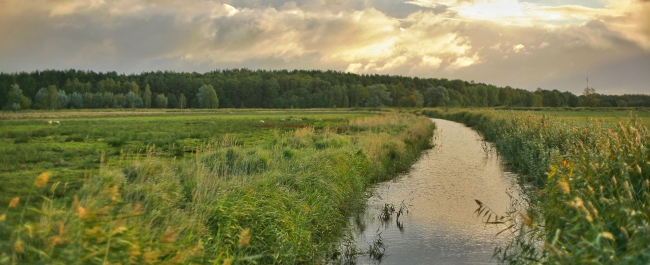Understanding agricultural azole use, impacts on local water bodies and AMR

Building an interdisciplinary evidence base in Devon and Bristol.
The challenge
Agricultural azoles are a type of chemical fungicides used to protect food crops from a range of fungal diseases. Improving the quality and yield of crops, they enable farmers to increase food production, however this has led to higher levels of fungicide use; in 2016, fungicides accounted for 39% of total pesticide use in the UK, most of which were azoles.
Over time, azoles accumulate in soil and water bodies posing ecotoxicological threats to drinking water, food security, aquatic life, and human health. Recent studies indicate water pollution from agricultural azoles may contribute to the emergence of antimicrobial resistant (AMR) fungi. As a result and due to new UK and EU legislation, farmers are under increased pressure to produce more food using fewer pesticides, while faced with new fungicides to slow resistance.
While occurrence and risks of azole antifungals in wastewater and meat industry have been studied, their presence in surface water and potential threats to water quality are underexplored.
What we're doing
This project aims to understand this issue from the perspective of both farmers and scientists to develop a nuanced, holistic evidence base for future research. Firstly, we will explore farmers’ agricultural and water use/management knowledge and practices to protect crops from fungal diseases, and the wider pressures they face. We will obtain ethical approval, and farmers will be assured that our aim is to learn from (not judge) their understandings of fungicide use.
Secondly, we will use High-performance liquid chromatography (HPLC) to quantify concentrations of commonly used agricultural azoles in surface water associated with farmlands in Devon and Bristol and perform a risk assessment using European guidelines5 to determine if detected levels of agricultural azoles (if any) contribute to poor water quality and AMR.
How it helps
While occurrence and risks of azole antifungals in wastewater and meat industry have been studied, their presence in surface water and potential threats to water quality are underexplored. This project aims to understand this issue from the perspective of both farmers and scientists to develop a nuanced, holistic evidence base for future research.
Investigators
- Dr Susan Conlon, Bristol Veterinary School
- Dr Dhara Malavia, Centre for Medical Mycology (MRC), University of Exeter
- Dr Andrew Jones, Theology and Religion Department, University of Exeter
- Dr Ray Chan, Geography department, University of Exeter
- Dr Aimee Murray, European Centre for Environment and Human Health, University of Exeter
- Dr Nervo Verdezoto, School of Computer Science and Informatics, Cardiff University
 Lead researcher profile
Lead researcher profile
Dr Susan Conlon, Research Associate in Human Geography, Bristol Veterinary School
Related research centres
Partner organisations
- University of Exeter